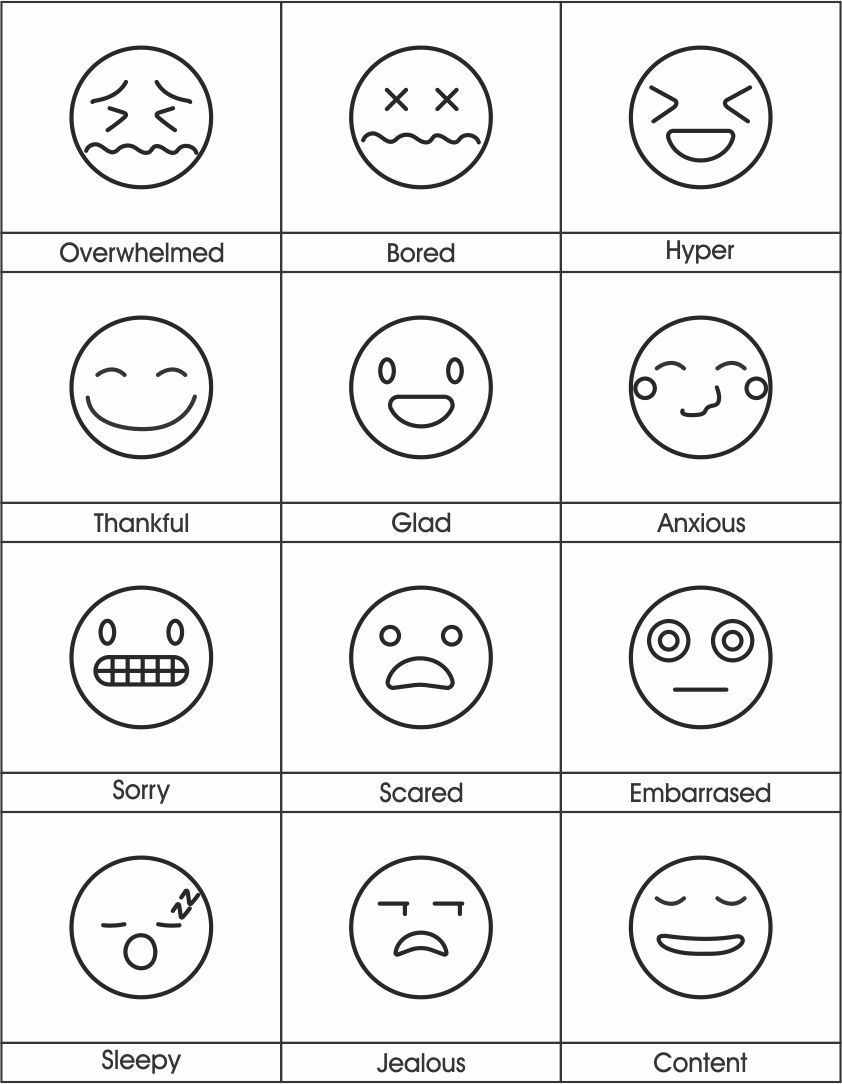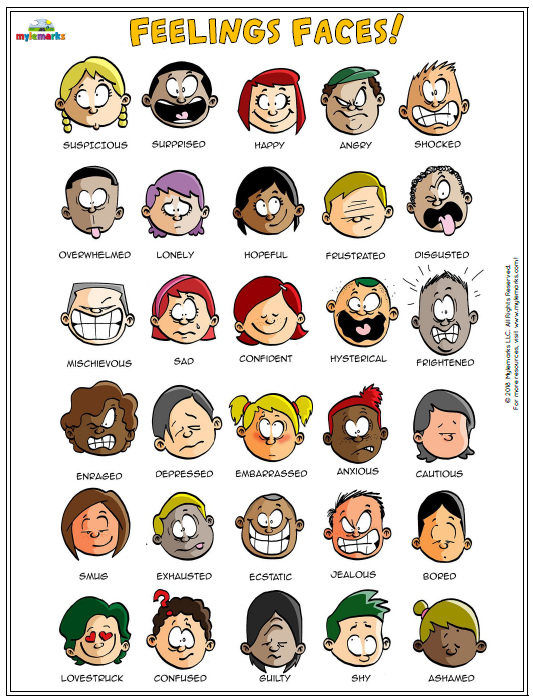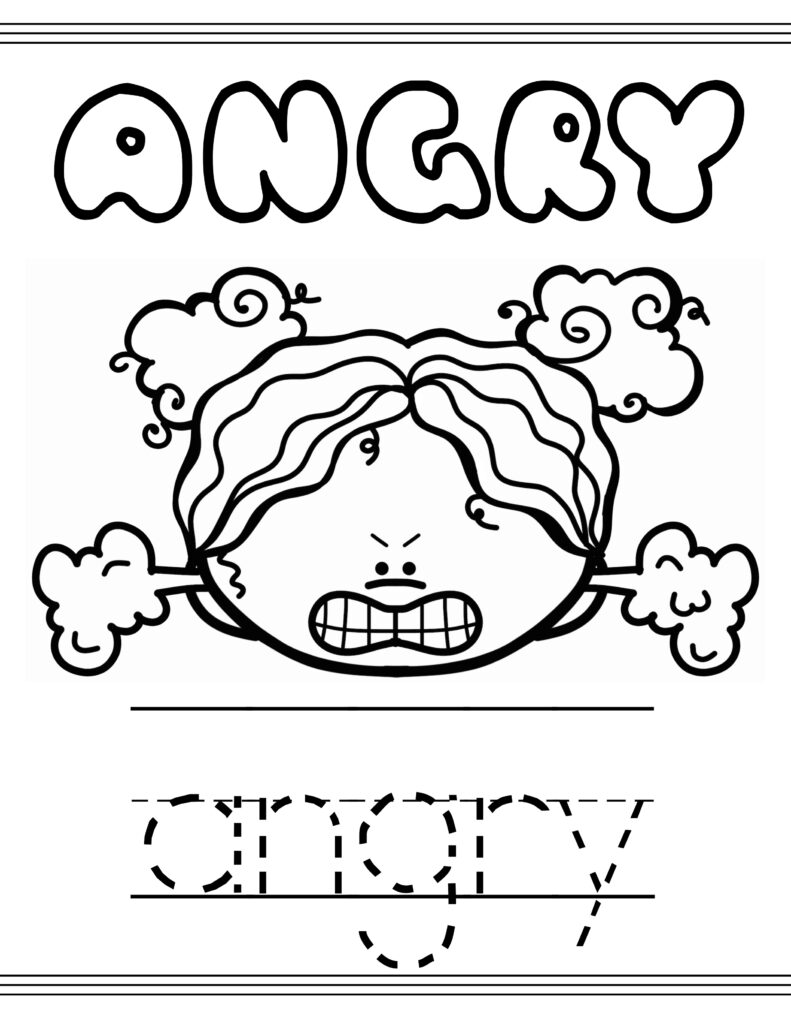Printable
Create 7 Perfect Printable Emotion Faces Now

Introduction to Emotion Faces

Creating printable emotion faces can be a fun and creative activity, especially for children. These faces can help kids identify and express their emotions in a healthy way. In this article, we will explore how to create 7 perfect printable emotion faces that can be used in various settings, such as classrooms, therapy sessions, or even at home.
Materials Needed

To create these printable emotion faces, you will need the following materials:
- Paper or cardstock
- Markers or colored pencils
- Printable emotion face templates (optional)
- Glue or a glue stick
- Scissors
Step-by-Step Guide to Creating Emotion Faces

Here’s a step-by-step guide to creating 7 perfect printable emotion faces:
- Happiness: Draw a smiling face with curved lines and a bright, cheerful expression. Add some colorful hair or accessories to make it more engaging.
- Sadness: Create a face with a frowning expression, using downward curved lines and a hint of tears in the eyes. Use softer colors to convey a sense of melancholy.
- Anger: Draw a face with a scowling expression, using sharp lines and a bold, red color. Add some clenched fists or a furrowed brow to emphasize the emotion.
- Fear: Create a face with a worried expression, using wide eyes and a slightly open mouth. Use lighter colors to convey a sense of vulnerability.
- Surprise: Draw a face with a shocked expression, using raised eyebrows and a open mouth. Add some colorful, swirling patterns around the face to emphasize the emotion.
- Disgust: Create a face with a scrunched-up expression, using a wrinkled nose and a frowning mouth. Use green or brown colors to convey a sense of distaste.
- Neutral: Draw a face with a calm, straight expression, using gentle lines and a soft, beige color. Add some subtle, neutral accessories to emphasize the emotion.
Tips and Variations

Here are some tips and variations to make your emotion faces more engaging:
- Use different shapes and sizes to create unique faces.
- Experiment with various colors and patterns to convey different emotions.
- Add some fun accessories, such as hats, glasses, or jewelry, to make the faces more interesting.
- Use different materials, such as foam, felt, or construction paper, to create 3D emotion faces.
| Emotion | Facial Expression | Color Scheme |
|---|---|---|
| Happiness | Smiling | Bright, cheerful colors |
| Sadness | Frowning | Softer, muted colors |
| Anger | Scowling | Bold, red colors |
| Fear | Worried | Lighter, pastel colors |
| Surprise | Shocked | Colorful, swirling patterns |
| Disgust | Scrunched-up | Green or brown colors |
| Neutral | Calm, straight | Soft, beige colors |

👀 Note: You can adjust the facial expressions and color schemes to suit your personal preferences or the needs of your audience.
Conclusion and Final Thoughts

Creating printable emotion faces can be a fun and creative activity that helps kids identify and express their emotions in a healthy way. By following these steps and tips, you can create 7 perfect printable emotion faces that can be used in various settings. Remember to experiment with different materials, colors, and accessories to make your emotion faces more engaging and unique. With these printable emotion faces, you can help kids develop emotional intelligence and build a stronger sense of self-awareness.
What are the benefits of using printable emotion faces?

+
The benefits of using printable emotion faces include helping kids identify and express their emotions in a healthy way, developing emotional intelligence, and building a stronger sense of self-awareness.
How can I use printable emotion faces in the classroom?

+
You can use printable emotion faces in the classroom to teach kids about different emotions, create a feelings chart, or have kids draw and write about their emotions.
Can I customize the printable emotion faces to suit my needs?

+



